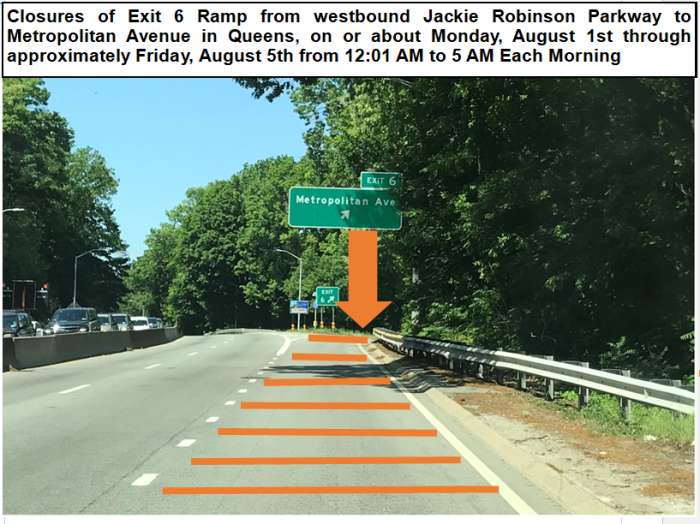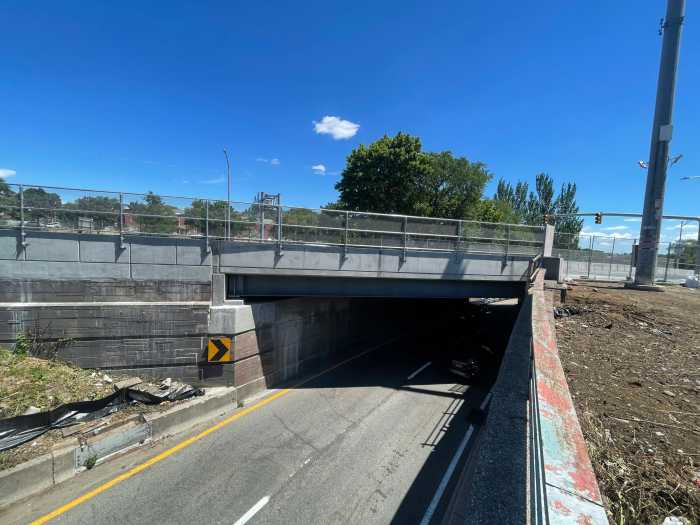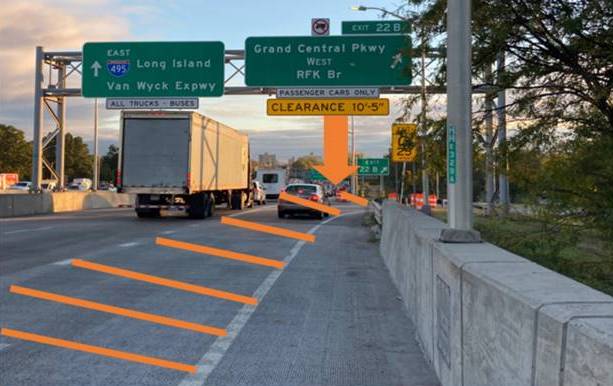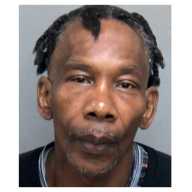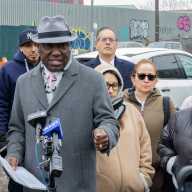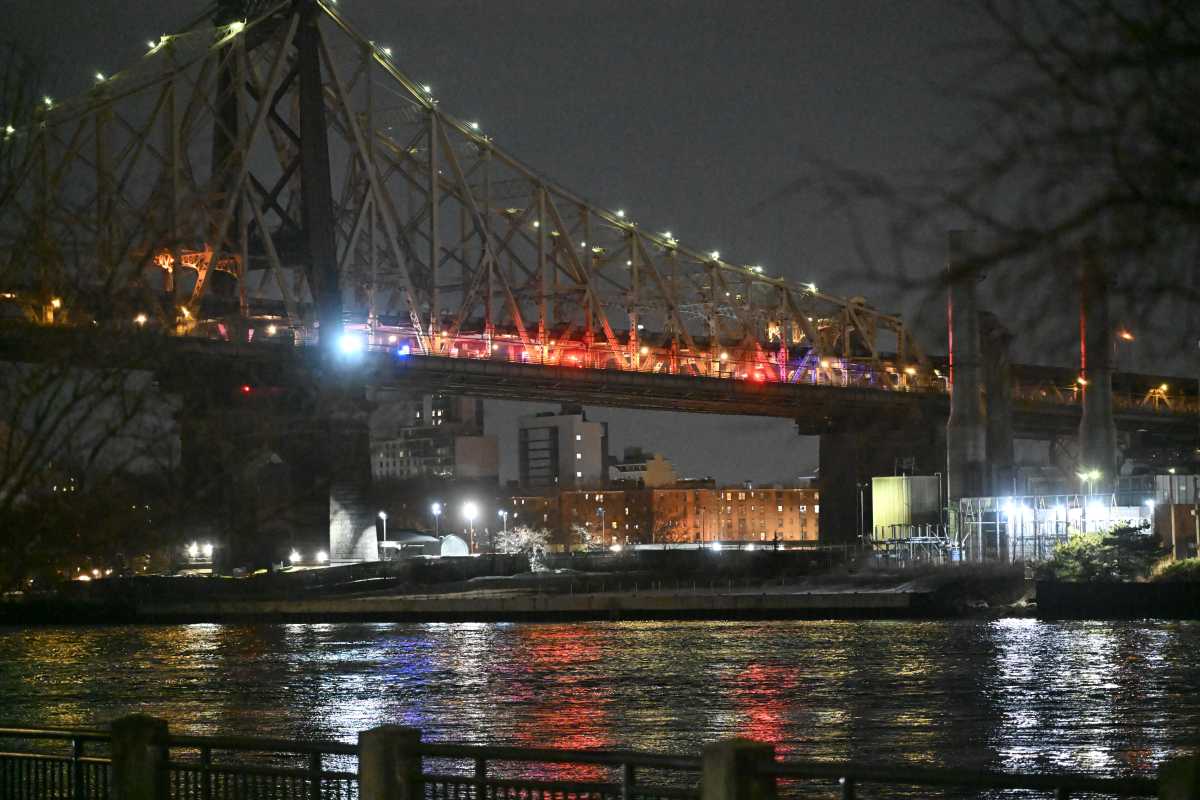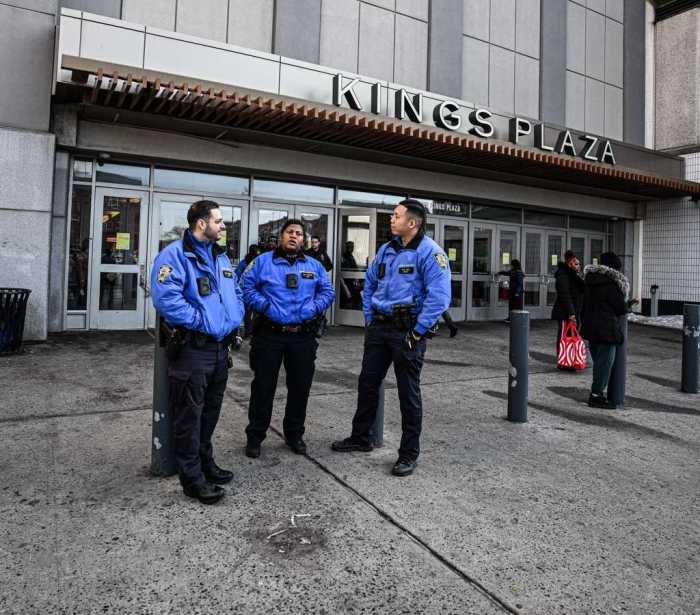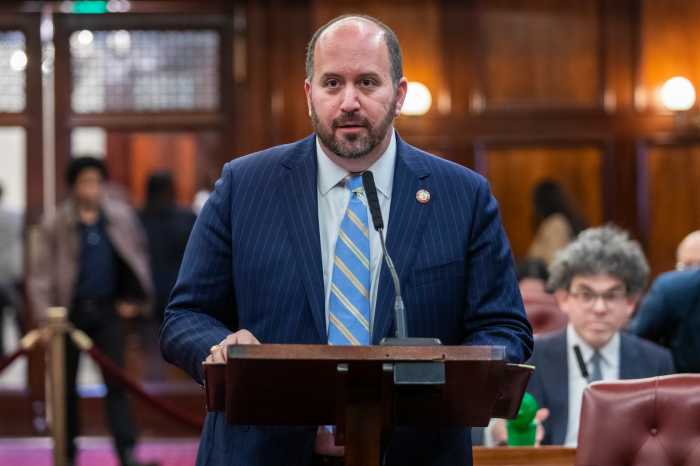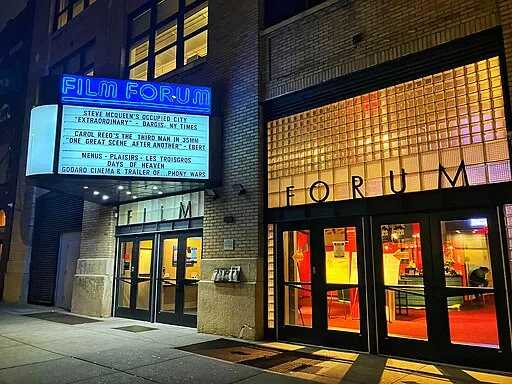In addition to worrying about the upcoming final exams and summer employment opportunities, the thousands of St. John’s University students — and other motorists — who drive into Queens from Long Island each day have a new concern after New York state recently deployed mobile speed cameras along the Long Island Expressway.
Governor Kathy Hochul announced the rollout of mobile speed cameras as part of National Work Zone Awareness Week, and it created quite a buzz at SJU’s Hillcrest campus.
“The word is definitely out there. I see it on social media and there’s been a whole lot of water cooler chatter about it, not just among the students but all of our faculty and staff as well,” SJU Associate Vice President of University Communications & Public Affairs Brian Browne said. “There’s going to be some annoyance and irritation and it will take some getting used to but if the end result is safety for our motorists and the safety of workers along the Long Island Expressway, then I think that’s a good thing.”
The mobile speed camera units were deployed at numerous sites in northeast Queens where the expressway is being widened and at dozens of locations in Nassau and Suffolk Counties. During one 45-minute testing period, the cameras totaled 6,500 violations. Had the cameras been issuing tickets for that 45-minute testing period, at $50 per violation, it would have cost motorists $325,000, according to sources.
In addition to his work on the university’s communication and public affairs, Browne is also an adjunct professor of government and politics.
“Putting on my political science hat for a moment, you know the government has a lot of tools to help influence people’s behavior — legislations, regulations, taxations — and frankly, now you’re seeing more of the use of technology to influence people’s behavior, whether it’s red light cameras, speed cameras, that type of thing,” Browne said. “I think this is just another tool in the government bucket to influence behavior and bring about policy change, which if in this case is worker safety, then I think that’s progress.”
The governor met with New York State Department of Transportation road crews to announce the new pilot program. The speed cameras are mounted to SUVs that change locations and motorists will be automatically given a warning for the first month of the program but after a grace period, violators will be mailed $50 fines for the first violation, $75 for the second and $100 for a third and subsequent violations within 18 months of the first ticket.
“As we officially kick off construction season in New York as well as National Work Zone Awareness Week, I thank highway workers across the state who put their lives on the line to maintain and enhance the roads that we all rely on every day,” Hochul said. “This new pilot program will be instrumental in encouraging safe driving habits in highway work zones and protecting the lives of those who help maintain a safe and reliable highway system.”

Drivers that fail to pay speed zone camera fines run the risk of not being able to renew their vehicle’s registration with the state Department of Motor Vehicles, according to the governor’s office. In addition to the speed zone camera, police will also be stepping up enforcement of the Move Over Law that requires drivers to merge out of the right lane when vehicles are stopped on the shoulder of a roadway. There will also be a public awareness campaign.
“Too many of our union members have died or suffered serious injuries on the job due to the carelessness of drivers,” Civil Service Employees Association President Mary Sullivan said. “Together we share the responsibility to ensure that the men and women who maintain our roads and infrastructure are respected and get home safely to their families each day.”
Meanwhile, Browne believes the St. John’s community will adjust to the new speed of camera enforcement.
“It will take some getting used to,” Browne said. “I remember when they put a speed camera right on the Grand Central Parkway service road at 188th Street that runs parallel to the campus and when it first went up, a number of my colleagues got pinched. But you just need to adjust your behavior.”
Councilman Robert Holden, who admitted to being a “Doubting Thomas” when it came to Vision Zero policies when he was a civic leader — before modifying his views after seeing positive results as an elected leader — gave the mobile speed camera rollout on the Expressway a mixed review.
“Speed cameras shouldn’t replace police work,” Holden said. “They may have a place in highway work zones for worker safety, but widespread use on highways feels like a cash grab.”


